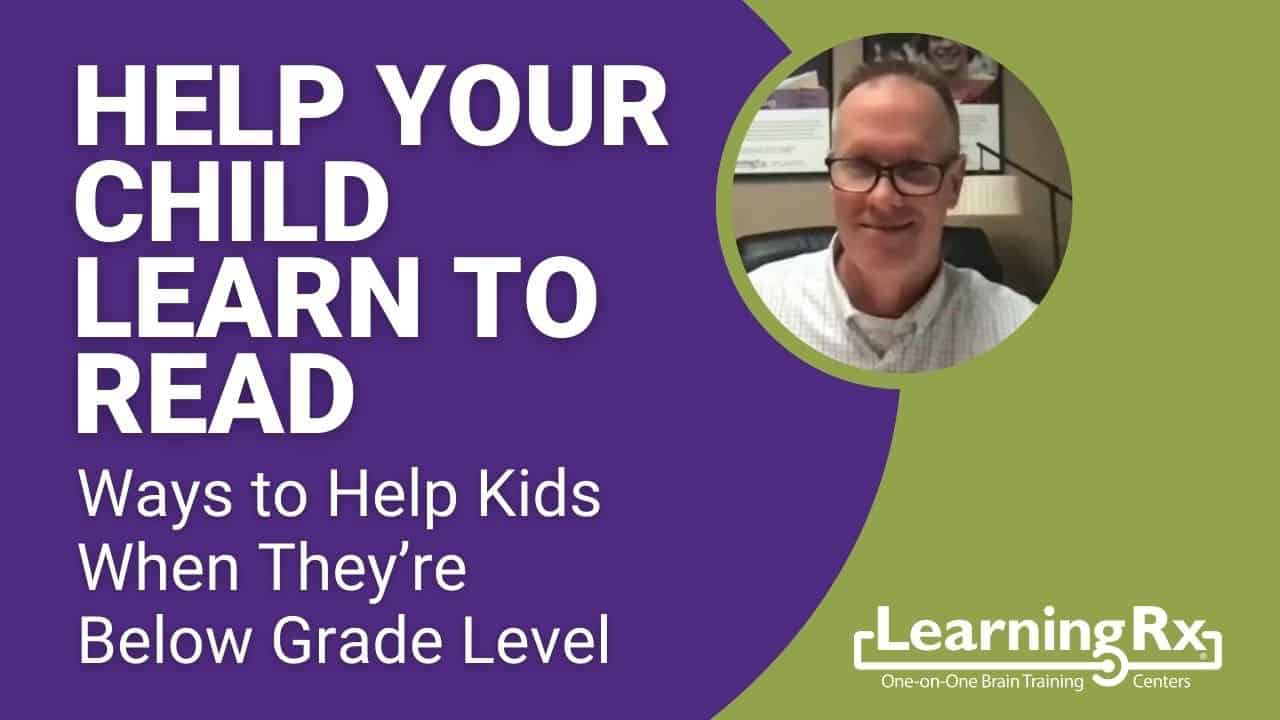Helping Your Child Learn to Read
In helping your child learn to read or read at grade level, it’s important to ask – “Why are they below grade level and struggling in reading?” Roughly 70% of students can learn to read without much difficulty, however, the other 30% need extra reading help. In addition, there is data showing that if a student is not caught up in reading by the end of 3rd grade, they rarely catch-up. Why is this? Why, despite reading tutoring and reading interventions, do students often continue to struggle to read? It can also be confusing as parents often hear “just give it more time, your child will catch-on.”
But it is critical to address these issues early and 3rd grade can be a turning point as students transition from “learning to read” to “reading to learn”. The answer is often that these reading interventions are not identifying and addressing the root cause as to why a child is struggling to read. Reading tutoring can only help so much if it is not addressing the root cause.
One of the most common reasons students struggle to read is related to cognitive skills that are hindering their advancement. When this is the case, the challenge is that these students need cognitive skills training instead of reading tutoring. This is true whether it is a general reading struggle or dyslexia.
The typical cognitive weaknesses for children who struggle to read or are diagnosed with dyslexia are:
• Auditory processing – This is a student’s ability to process and segment sounds. When weak, decoding and blending sounds is difficult causing frustrating and an inability to sound out words.
• Long-term memory and visual processing – these are critical skills in our language given the majority of our words are non-phonetic and require word recognition vs. blending. For example, words like “precious” or “said” do not make phonetic sense and require strong memory. As we get older and words get longer, memory becomes more important as to be a fluent reader we need to read from memory vs. decoding every word.
• Processing speed – this skill impacts reading fluency, how quickly a child can read and recognize words. Reading is often labored and slow when this skill is weak. When processing is slow, you may see your child become fatigued when reading as their brain has to work harder to read. At LearningRx Eagan, our reading training follows the Science of Reading guideline, however, we go a critical step further in that strong reading requires a foundation of strong cognitive skills. The reason we see significant reading gains (as demonstrated in our overall results and recent peer-reviewed research)
is that we are strengthening these weaker cognitive skills that are causing or significantly contributing to your child’s reading struggle. If the root cause of a reading struggle is not addressed, students will continue to struggle with the focus on reading tutoring just to try to tread water every year.
The first step towards getting reading help to unlock your child’s reading skills, is to contact the LearningRx eagan location to schedule an initial cognitive skills assessment. This assessment will identify why your child is struggling with reading and enable a plan to help them excel in reading.
Call LearningRx Eagan today and mention this article to receive $100 off the assessment price!







